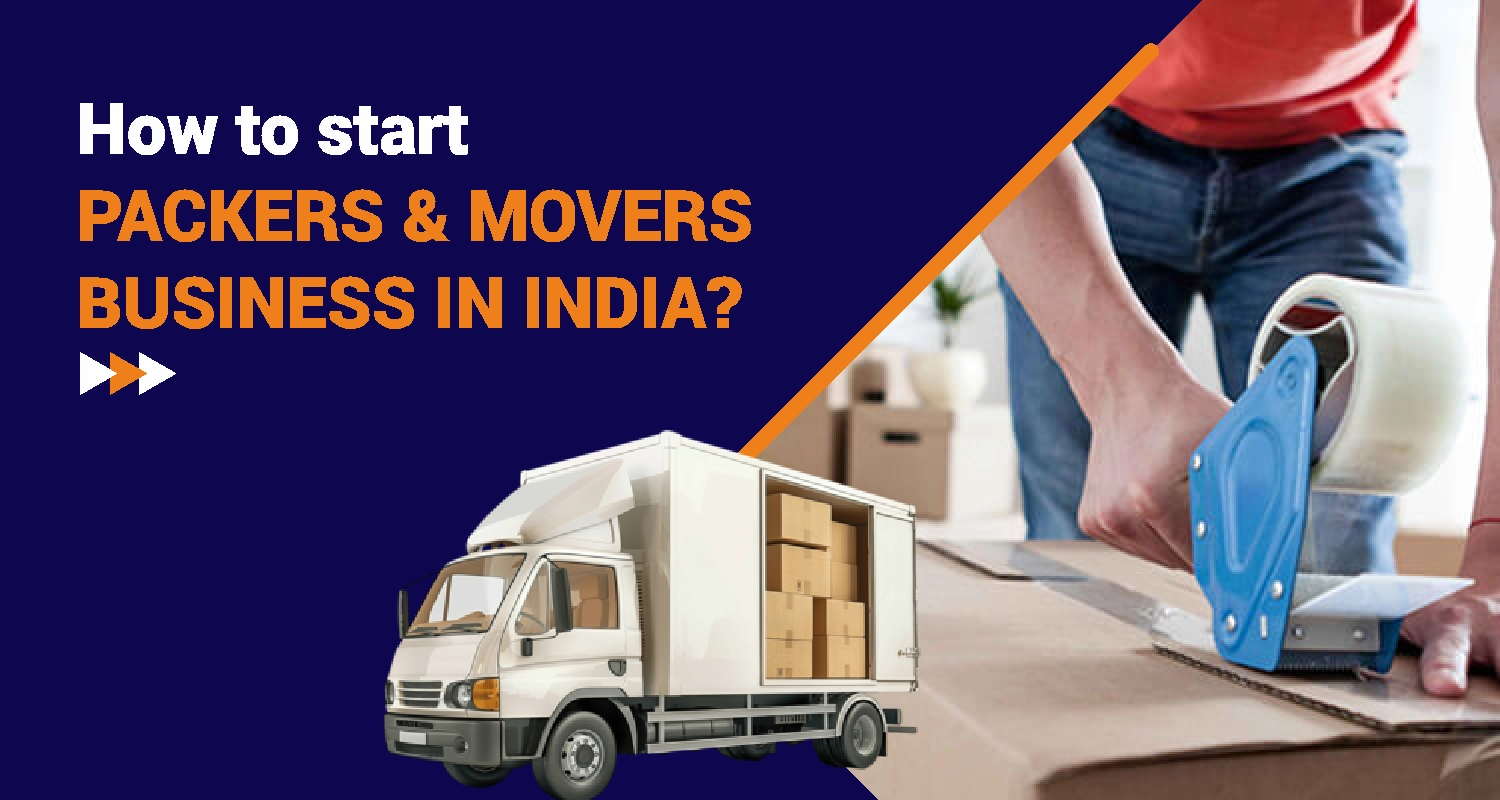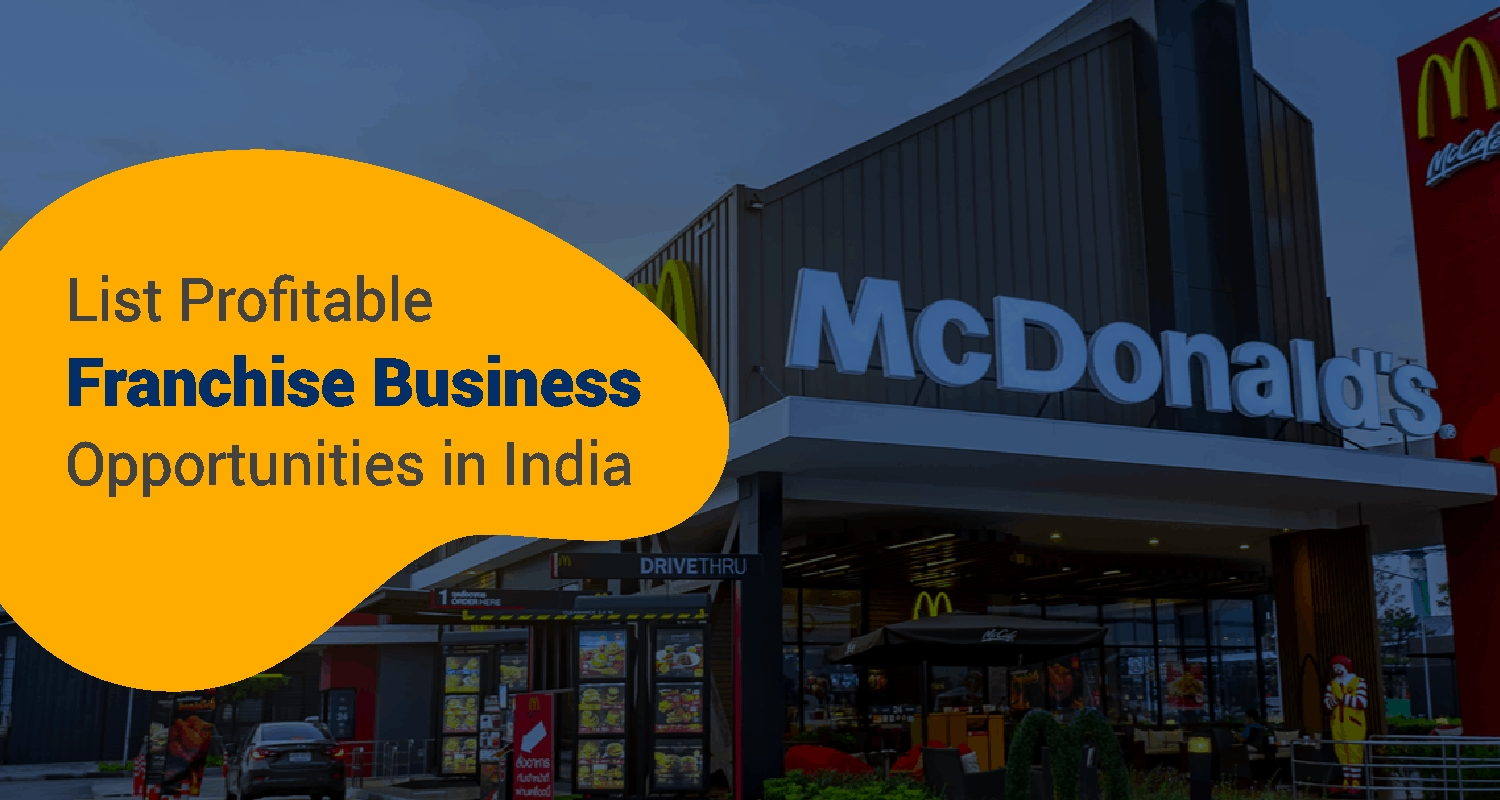How to Start Packers & Movers Business in India?

Imagine you've landed your dream job in a bustling city across India, or your child secured a coveted spot at a prestigious university hundreds of kilometers away. The crucial question now is: how can you efficiently and safely get all of your possessions there? Packers and movers can help in this situation!
India's booming economy and growing urbanization have led to a massive increase in people on the move. Whether it's for a fresh career opportunity, educational pursuits, or simply a change of scenery, millions of Indians relocate every year. This surge in mobility has created a thriving market for reliable packers and movers services.
Have you ever considered being the one to provide this valuable service? Starting your own packers and movers business can be a rewarding journey towards financial independence and success. It allows you to be your own boss, set your own schedule, and contribute to the smooth relocation experience of countless individuals and families.
Planning Your Packers and Movers Business:
Before diving into the logistics of starting your packers and movers business, it's crucial to lay a solid foundation through careful planning. This involves understanding your target market, conducting thorough market research, and outlining your business plan.
Identifying Your Target Market:- Who are you trying to serve? Are you focusing on residential customers (families, students), corporate clients (offices, factories), or both?
- What specific needs and preferences do your target customers have? Are they looking for budget-friendly options, premium services, or specialized services like international moving?
- Analyze the competition: Identify the top 10 packers and movers in India in your area and study their strategies, pricing, and customer reviews.
- Assess customer demand: Understand the current and projected demand for packers and movers services in your region.
- Evaluate the economic conditions: Consider factors like GDP growth, population trends, and urbanization rates, as they can impact the demand for relocation services.
- Decide on the range of services you'll offer: Consider options like local moving, long-distance moving, packing and unpacking, storage facilities, and international moving.
- Determine your niche: Consider specializing in a particular area, such as corporate relocations, international moves, or moving fragile items.
- Estimate your startup costs: This includes expenses for vehicles, packing materials, labor, insurance, marketing, and rent for a physical office (if applicable).
- Project your revenue: Based on your target market and pricing, estimate your potential income.
- Calculate your profit margin: Determine the expected profit margin in the transport business in India after considering all expenses.
- Create a financial plan: Develop a detailed budget and cash flow projection to ensure your business remains financially sustainable.
Legal Requirements and Registrations:
Before you can start operating your packers and movers business, it's essential to comply with the legal requirements set by the Indian government. This includes registering your business, obtaining necessary licenses, and adhering to tax regulations.
Business Registration:- Choose a business structure: Decide whether to register your business as a sole proprietorship, partnership, or a limited liability company (LLC). Each structure has its own advantages and disadvantages.
- Register with the government: Submit the required documents to the relevant government authorities to register your business.
Read more: Business Registration Proof
Obtaining Licenses and Permits:- Shop and Establishment License: This license is necessary for businesses operating in physical premises.
- PAN Card: A Permanent Account Number (PAN) is required for tax identification and filing.
- GST Registration: If your business's annual turnover exceeds the threshold set by the government, you'll need to register for Goods and Services Tax (GST).
- Vehicle Permits: Depending on the type of vehicles you'll use, you may need to obtain permits from the Regional Transport Office (RTO).
- File income tax returns: Ensure timely filing of income tax returns for your business.
- Pay taxes: Comply with all relevant tax regulations and pay taxes as required.
- Seek professional advice: It's recommended to consult with a legal professional to ensure that you comply with all applicable laws and regulations for your packers and movers business.
Sapna aapka. Business Loan Humara.
Apply NowInvestment and Resources:
Starting a packers and movers business requires a significant initial investment. This includes expenses for vehicles, packing materials, labor, insurance, marketing, and potentially a physical office space.
Vehicle Costs:- Trucks: The size and type of trucks you'll need will depend on the scale of your operations. Consider factors like fuel efficiency, load capacity, and maintenance costs.
- Tempos: Smaller vehicles like tempos can be useful for local moves or smaller loads.
- Boxes: Invest in sturdy boxes of various sizes to accommodate different items.
- Tape, bubble wrap, and other packing supplies: Ensure you have a sufficient supply of packing materials to protect fragile items.
- Hiring employees: You'll need to hire drivers, packers, and helpers to carry out your operations.
- Wages and benefits: Calculate the wages and benefits you'll need to offer your employees.
- Business insurance: Protect your business from potential risks like property damage, liability claims, and employee injuries.
- Goods in transit insurance: Insure the goods you're transporting to protect your customers and your business from financial losses in case of damage or loss.
- Website: Create a professional website to showcase your services and attract customers.
- Social media: Utilize social media platforms to promote your business and engage with potential customers.
- Local advertising: Consider advertising in local newspapers, flyers, and online directories.
- Physical location: If you plan to have a physical office, factor in the costs of rent, utilities, and office supplies.
- Personal savings: If you have sufficient savings, you can use your own funds to finance your business.
- Loans: Consider obtaining a loan from a bank, financial institution, or government schemes.
- Investors: If you have a strong business plan, you might attract investors who are willing to provide funding.
- Create a detailed budget: Outline all your expected expenses and income to ensure your business remains financially sustainable.
- Track expenses: Monitor your spending closely to identify areas where you can optimize costs.
Building Your Team and Operations
A well-structured team is crucial for the success of your packers and movers business. Hiring reliable and skilled personnel will ensure smooth operations and satisfied customers.
Key Roles:- Drivers: Experienced and licensed drivers are essential for transporting goods safely and efficiently.
- Packers: Skilled packers can ensure that items are packed securely to prevent damage during transit.
- Helpers: Additional staff members can assist with packing, loading, and unloading.
- Job postings: Utilize online job boards and local newspapers to attract qualified candidates.
- Interviews: Conduct thorough interviews to assess candidates' skills, experience, and attitude towards customer service.
- Background checks: Verify the credentials and references of potential employees.
- Packing techniques: Train your staff on proper packing techniques to ensure the safety of goods.
- Safety procedures: Educate your team on safety measures to prevent accidents and injuries.
- Customer service: Emphasize the importance of providing excellent customer service to build a positive reputation.
- Scheduling: Develop efficient scheduling systems to optimize your resources and meet customer deadlines.
- Inventory management: Maintain an accurate inventory of packing materials to ensure adequate supply.
- Quality control: Implement quality control measures to ensure that goods are handled and transported with care.
- Moving software: Consider using specialized software to streamline operations, generate quotes, and track shipments.
- Mobile apps: Offer mobile apps to enhance customer convenience and communication.
By investing in your team and implementing effective operations management, you can create a well-run packers and movers business that delivers exceptional service to your customers.
Marketing and Customer Acquisition:
Effective marketing is essential for attracting new customers and building a strong reputation for your packers and movers business. Here are some strategies you can employ:
Online Presence:- Website: Create a professional website that showcases your services, pricing, and customer testimonials.
- Social media: Utilize platforms like Facebook, Instagram, and Google My Business to connect with potential customers and share updates.
- Online directories: List your business on popular online directories like Justdial and Sulekha.
- Newspapers: Advertise in local newspapers to reach a wide audience.
- Flyers: Distribute flyers in residential areas and commercial districts.
- Community events: Participate in local events and fairs to promote your business.
- Real estate agents: Collaborate with real estate agents who can refer clients to your business.
- Relocation companies: Partner with companies that assist with employee relocations.
- Offer competitive rates: Research your competitors' pricing and offer competitive rates to attract customers.
- Packages and discounts: Provide special packages or discounts for bulk moves or repeat customers.
- Excellent service: Focus on providing exceptional customer service to build a positive reputation.
- Positive reviews: Encourage satisfied customers to leave positive reviews on your website and social media.
- Develop a strong brand identity: Create a memorable logo, tagline, and brand message.
- Branding consistency: Make sure your branding is the same on all of your marketing platforms.
By implementing these marketing strategies, you can effectively reach your target audience and generate new business for your packers and movers company. Remember, building a strong reputation through exceptional service is key to long-term success.
Managing Risks and Challenges:
While starting a packers and movers business can be rewarding, it's important to be aware of the potential risks and challenges that you may encounter. Here are some common issues to consider:
- Damage to goods: There is always a risk of goods being damaged during transportation. To mitigate this, ensure your staff is trained in proper packing techniques and use high-quality packing materials.
- Delays in delivery: Unexpected delays can occur due to traffic, weather conditions, or other unforeseen circumstances. Maintain open communication with customers and provide regular updates on the status of their move.
- Unforeseen expenses: Unexpected costs can arise due to vehicle breakdowns, accidents, or changes in fuel prices. Have a contingency plan in place to address these challenges.
- Competition: The packers and movers industry is competitive, especially in major cities. Differentiate your business by offering unique services, competitive pricing, and excellent customer service.
To effectively manage these risks, consider the following strategies:
- Insurance: Obtain comprehensive insurance coverage to protect your business and customers from financial losses.
- Communication: Maintain open and transparent communication with customers throughout the moving process.
- Contingency planning: Develop contingency plans to address potential challenges and minimize disruptions.
- Reputation management: Focus on building a positive reputation through excellent customer service and positive online reviews.
By being prepared for potential risks and challenges, you can increase your chances of successfully navigating the packers and movers business landscape in India.
Conclusion
Starting a packers and movers business in India can be a rewarding entrepreneurial venture. By following the steps outlined in this article, you can create a successful and profitable Indian movers business.
Remember to conduct thorough research, plan carefully, and invest in building a strong team. Focus on providing exceptional customer service and building a positive reputation to differentiate your business from the competition.
With hard work, dedication, and a well-thought-out strategy, you can establish a thriving packers and movers business that meets the growing demand for relocation services in India.
FAQs
Q1. What are the key steps to starting a packers and movers business in India?Ans. To start a packers and movers business, you need to plan thoroughly, conduct market research, define your services, and comply with legal requirements like business registration, obtaining licenses, and adhering to tax regulations. Additionally, financial planning, investment in resources, and team building are crucial for success.
Q2. What legal conditions must I meet in order to launch my business?Ans. The Regional Transport Office (RTO) will require you to register your business, get a Shop and Establishment License, a PAN Card, register for GST (if applicable), and get vehicle permits. Legal professionals should be consulted to make sure all regulations are followed.
Q3. What are the initial investments required for starting a packers and movers business?Ans. The main initial costs include purchasing vehicles, packing materials, insurance, labor, and marketing. You may also need to rent office space and invest in creating an online presence. Startup costs can vary depending on the scale of operations and the services offered.
Q4. How can I attract customers and grow my packers and movers business?Ans. Focus on building an online presence through a professional website and social media platforms, and list your business on online directories. Local advertising, partnerships with real estate agents, and competitive pricing can also help attract customers. Offering excellent customer service and encouraging positive reviews will enhance your reputation and lead to business growth.
Sapna aapka. Business Loan Humara.
Apply NowDisclaimer: The information contained in this post is for general information purposes only. IIFL Finance Limited (including its associates and affiliates) ("the Company") assumes no liability or responsibility for any errors or omissions in the contents of this post and under no circumstances shall the Company be liable for any damage, loss, injury or disappointment etc. suffered by any reader. All information in this post is provided "as is", with no guarantee of completeness, accuracy, timeliness or of the results etc. obtained from the use of this information, and without warranty of any kind, express or implied, including, but not limited to warranties of performance, merchantability and fitness for a particular purpose. Given the changing nature of laws, rules and regulations, there may be delays, omissions or inaccuracies in the information contained in this post. The information on this post is provided with the understanding that the Company is not herein engaged in rendering legal, accounting, tax, or other professional advice and services. As such, it should not be used as a substitute for consultation with professional accounting, tax, legal or other competent advisers. This post may contain views and opinions which are those of the authors and do not necessarily reflect the official policy or position of any other agency or organization. This post may also contain links to external websites that are not provided or maintained by or in any way affiliated with the Company and the Company does not guarantee the accuracy, relevance, timeliness, or completeness of any information on these external websites. Any/ all (Gold/ Personal/ Business) loan product specifications and information that maybe stated in this post are subject to change from time to time, readers are advised to reach out to the Company for current specifications of the said (Gold/ Personal/ Business) loan.



